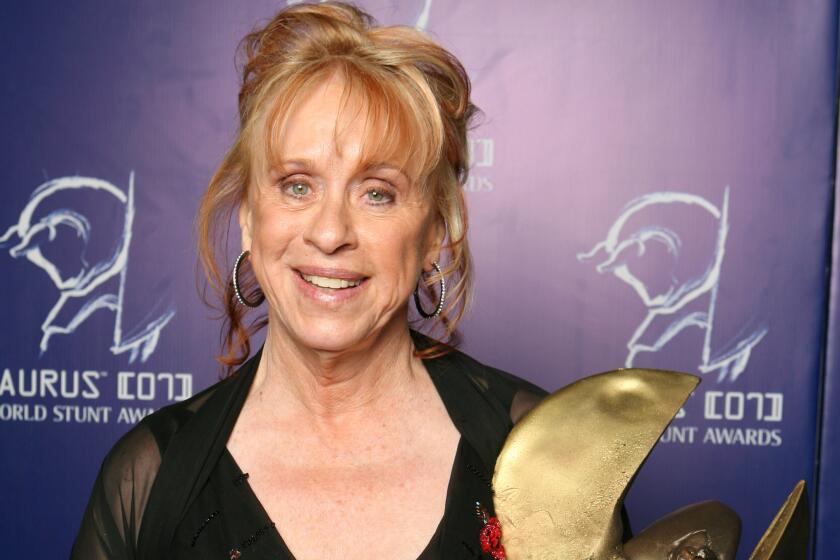U.S. Cigarette Unit to Be Sold to British Firm : Tobacco: Proposed $1-billion sale of American Brands’ domestic subsidiary is said to illustrate pressures on the industry.
With opposition to cigarettes growing while the popularity of smoking drops, American Brands on Tuesday agreed to sell its domestic tobacco subsidiary, which makes Lucky Strike and Carlton cigarettes, to BAT Industries of Britain for $1 billion.
The move by the nation’s fifth-largest tobacco company to dump its U.S. tobacco holdings follows exploration by the industry’s giants--Philip Morris and RJR Nabisco--of deals that would split their cigarette and food divisions into separate companies. And it comes as government officials propose tougher regulation of tobacco products.
“The sale illustrates the changes and the pressures in the U.S. tobacco business,” said Ellen G. Baras, an industry analyst for Duff & Phelps in Chicago. “It’s a shrinking business.”
BAT Industries already owns Brown & Williamson, America’s third-largest tobacco firm and the maker of Kool and Raleigh cigarettes. Analysts said its acquisition of American Brands’ American Tobacco Co. unit--which must win U.S. government approval--would strengthen its position in the highly competitive industry.
The sale would boost BAT’s share of the $50-billion domestic market to nearly 18%, according to Wheat First Butcher & Singer, a Richmond, Va., brokerage firm. Philip Morris claims 42.2% of the market, while RJR Nabisco has 30.6%.
For American Brands, the sale would give it cash to pump into its diverse and lucrative lineup of consumer products, ranging from Jim Beam whiskey to Swingline staplers and Titleist golf balls.
American Brands, based in Old Greenwich, Conn., will also retain its Gallaher unit, the largest tobacco company in Britain.
Still, the sale distances the company from U.S. investor concerns over the long-term future of tobacco companies. And it rids itself of a unit--with brands past their heyday--that has steadily lost ground to larger rivals and whose profit took a beating amid an industry price war last year, analysts said.
Indeed, American Brands reported Tuesday that its first-quarter operating income fell 23.8% from a year earlier to $328.3 million, as earnings from domestic tobacco sales fell 46% to $55.4 million.
“Overall, this transaction, when completed, would remove potential uncertainty from American Brands while also fostering competitiveness in the domestic tobacco industry,” Chairman William J. Alley said. “This is an excellent strategic move for American Brands and its stockholders, a move that would enable us to focus more sharply on businesses with powerful market positions and greater long-term profit growth potential.”
On the New York Stock Exchange, shares of American Brands rose $2.875 on Tuesday to close at $34.625. BAT’s American Depositary Receipts gained 56 cents to close at $13.75 on the American Stock Exchange.
Other tobacco stocks also gained ground Tuesday, with Philip Morris surging $2 to $54.25 on the NYSE, while RJR Nabisco added 37.5 cents to $6.875.
*
Wall Street has warmed up to tobacco stocks in recent weeks as the companies released better-than-expected financial results for this year’s first quarter, including improved sales of more expensive and profitable lines of cigarettes.
Analysts were divided as to how the sale of American Tobacco would influence proposals to spin off the tobacco businesses of RJR Nabisco and Philip Morris. Executives of those firms are said to blame their tobacco businesses for depressing stock prices.
On Monday, Philip Morris--which makes Marlboro, the nation’s leading cigarette brand--said its board had considered the matter last week during an annual strategic planning meeting. But no decision was made, and the proposal remains under consideration.
Last year, RJR Nabisco attempted to spin off its food group, but canceled the offering in the face of weak demand for food industry stocks. Despite the deal’s collapse, executives reportedly remain interested in splitting up the company.
But those views might be changing as tobacco stocks rise and profits improve, said industry analyst Roy D. Burry at Kidder Peabody & Co. in New York.
The American Tobacco sale “will mean an industry with fewer players,” Burry said. As a result, “you are likely to get more favorable pricing and less price competition.”






